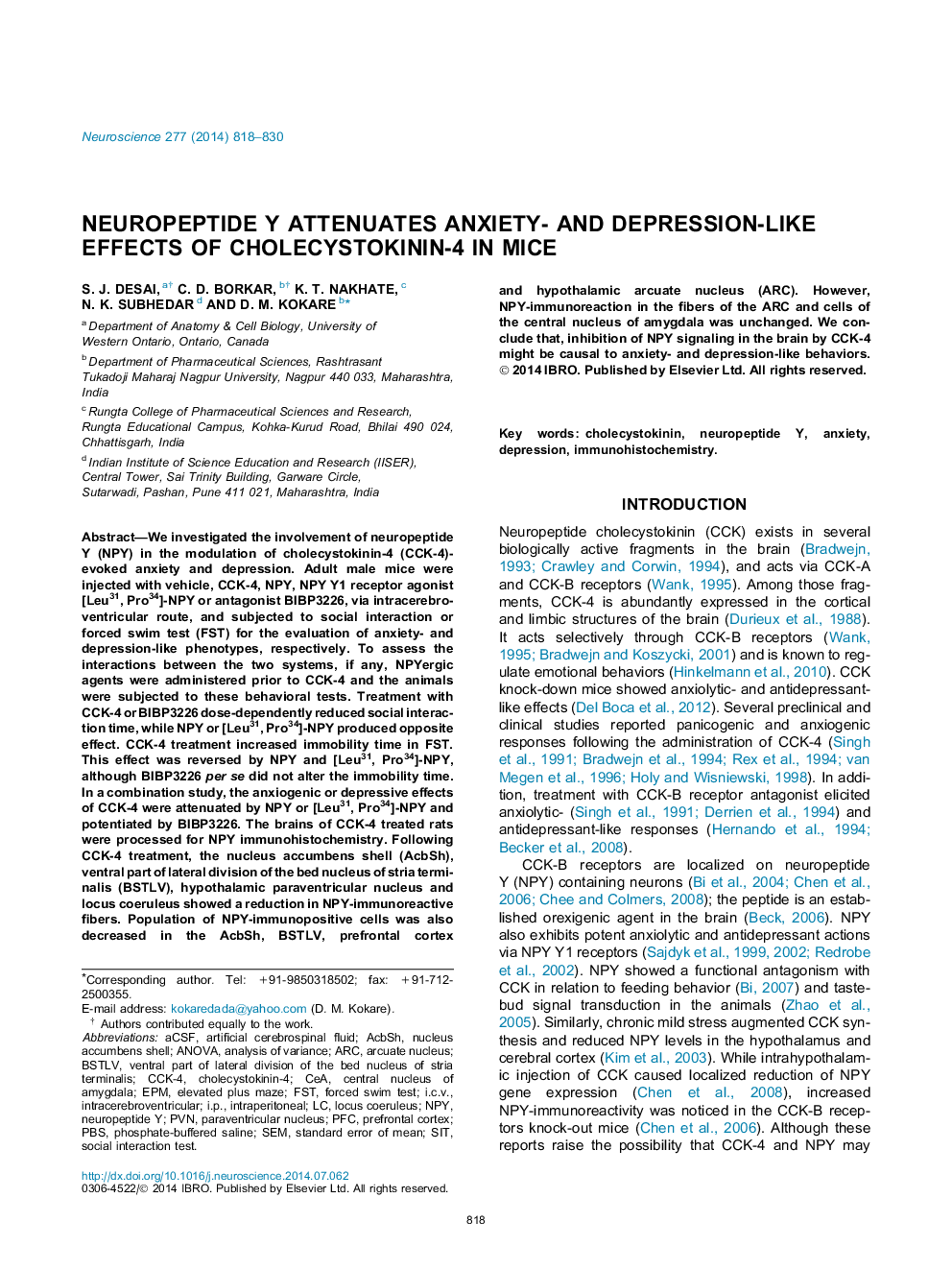| کد مقاله | کد نشریه | سال انتشار | مقاله انگلیسی | نسخه تمام متن |
|---|---|---|---|---|
| 6273636 | 1614799 | 2014 | 13 صفحه PDF | دانلود رایگان |

- Cholecystokinin-4 (CCK-4) induces anxiety- and depression-like effects in mice.
- Neuropeptide Y (NPY) produces anxiolytic and antidepressant effects in mice.
- NPY attenuates CCK-4 induced anxiety- and depression-like symptoms.
- CCK-4 administration decreases NPY expression in the limbic brain areas.
We investigated the involvement of neuropeptide Y (NPY) in the modulation of cholecystokinin-4 (CCK-4)-evoked anxiety and depression. Adult male mice were injected with vehicle, CCK-4, NPY, NPY Y1 receptor agonist [Leu31, Pro34]-NPY or antagonist BIBP3226, via intracerebroventricular route, and subjected to social interaction or forced swim test (FST) for the evaluation of anxiety- and depression-like phenotypes, respectively. To assess the interactions between the two systems, if any, NPYergic agents were administered prior to CCK-4 and the animals were subjected to these behavioral tests. Treatment with CCK-4 or BIBP3226 dose-dependently reduced social interaction time, while NPY or [Leu31, Pro34]-NPY produced opposite effect. CCK-4 treatment increased immobility time in FST. This effect was reversed by NPY and [Leu31, Pro34]-NPY, although BIBP3226 per se did not alter the immobility time. In a combination study, the anxiogenic or depressive effects of CCK-4 were attenuated by NPY or [Leu31, Pro34]-NPY and potentiated by BIBP3226. The brains of CCK-4 treated rats were processed for NPY immunohistochemistry. Following CCK-4 treatment, the nucleus accumbens shell (AcbSh), ventral part of lateral division of the bed nucleus of stria terminalis (BSTLV), hypothalamic paraventricular nucleus and locus coeruleus showed a reduction in NPY-immunoreactive fibers. Population of NPY-immunopositive cells was also decreased in the AcbSh, BSTLV, prefrontal cortex and hypothalamic arcuate nucleus (ARC). However, NPY-immunoreaction in the fibers of the ARC and cells of the central nucleus of amygdala was unchanged. We conclude that, inhibition of NPY signaling in the brain by CCK-4 might be causal to anxiety- and depression-like behaviors.
Journal: Neuroscience - Volume 277, 26 September 2014, Pages 818-830